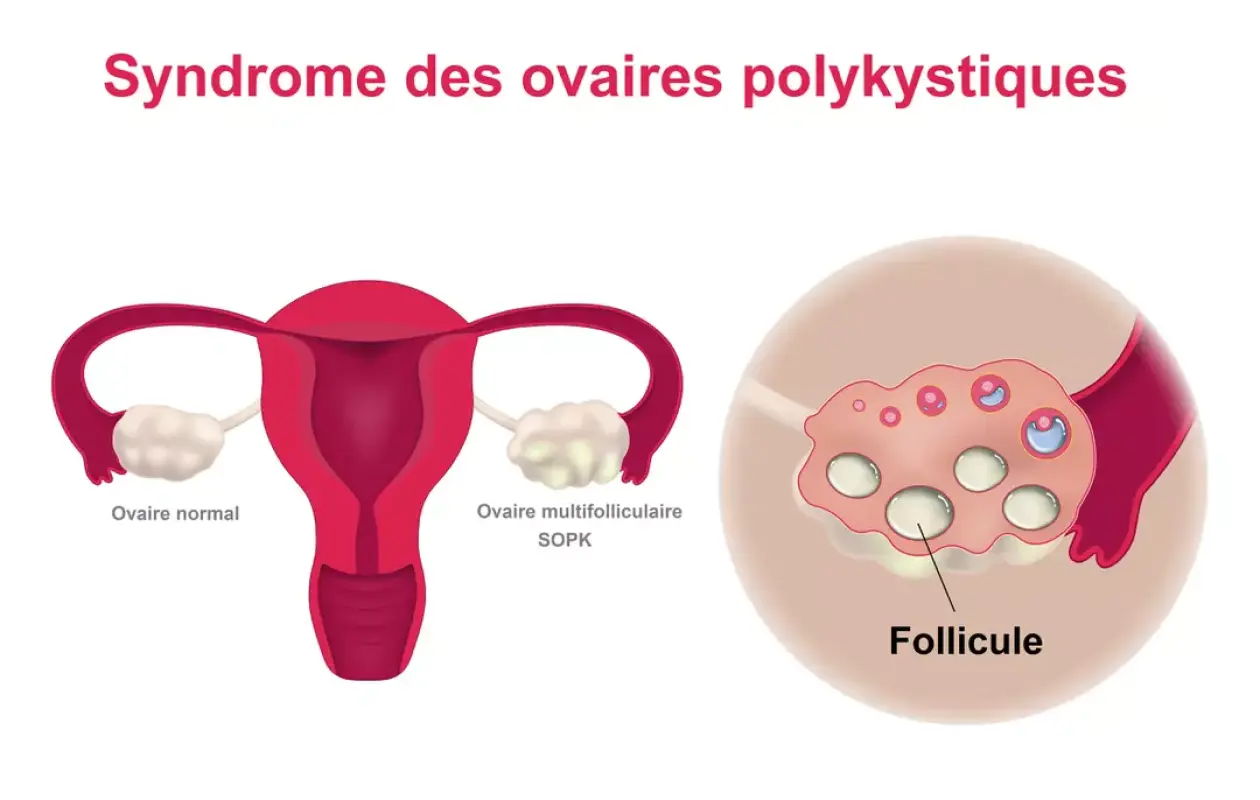
Le syndrome des ovaires polykystiques : Une menace silencieuse pour la santé des jeunes filles au Sénégal
Polycystic ovary syndrome (PCOS) is emerging as a major reproductive health challenge in Senegal. At a forum on family planning organized by the Association of Journalists in Health, Population, and Development (AJSPD) in collaboration with International Budget Partnerships (IBP), midwife Sina Diop sounded the alarm about this little-known but increasingly common condition.
A disease that affects more and more teenage girls
"Today, we receive many young girls aged 10 to 19 who sometimes go three or four months without their periods," said Ms. Diop. In many families, this absence of menstruation is quickly equated with pregnancy, plunging the teenagers into anxiety and stigmatization. However, in many cases, it is PCOS, a hormonal disorder that is crucial to recognize.
Multiple causes
PCOS can have genetic or hormonal origins, particularly linked to an excess of androgen hormones. Lifestyle changes also increase the risk. "We are eating increasingly unhealthy foods, and this promotes obesity, which in turn exacerbates metabolic disorders," explained the midwife. A sedentary lifestyle and poor diet combine to increase the prevalence. Symptoms include:
These signs, often trivialized or misinterpreted, should prompt you to consult a health professional.
Infertility and diabetes: very real risks
Beyond irregular cycles, PCOS can lead to fertility difficulties and an increased risk of type 2 diabetes. Socially, it causes significant psychological suffering. "In our society, infertility is almost always attributed to the woman, which is extremely traumatizing for many patients," Sina Diop emphasized. While there is no definitive cure, several approaches can mitigate its effects: hormonal regulation through certain contraceptive methods, adopting a healthy lifestyle (physical activity, balanced diet), and medical protocols for pregnancy plans.
Breaking the silence to better prevent
For Sina Diop, the urgent need is to break the taboo surrounding PCOS. "We must talk about sexuality and reproductive health without taboos, fight rumors, and properly inform young girls and their families. This is the price we pay for better preventing and treating PCOS," she concluded.
Commentaires (1)
The article mentions that a healthy lifestyle, including physical activity and a balanced diet, is one of the key approaches to managing PCOS. This makes me wonder about the specific challenges young women might face when trying to maintain such a routine, especially if they are also students or have limited access to certain foods.
I recently came by a comprehensive women's health travel guide that, while focused on travelers, also touches on maintaining health routines in different environments and managing hormonal health. It might offer some additional perspectives, though its primary focus is different. Sorry for dropping a link, but it might help illustrate the kind of broader health considerations I'm thinking about. You can find it here: https://pillintrip.com/de/article/womens-health-travel-guide-stay-safe-confident-worldwide
Based on the cultural context you've described, what do you believe are the biggest barriers for young Senegalese women in adopting these recommended lifestyle changes, and how can the community better support them?
Participer à la Discussion
Règles de la communauté :
💡 Astuce : Utilisez des emojis depuis votre téléphone ou le module emoji ci-dessous. Cliquez sur GIF pour ajouter un GIF animé. Collez un lien X/Twitter ou TikTok pour l'afficher automatiquement.